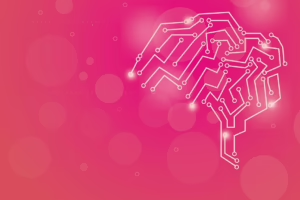Unlocking the Future: Your Guide to Our Comprehensive Artificial Intelligence Course
Introduction
In a world increasingly driven by technology, understanding artificial intelligence (AI) has become essential. AI is not only revolutionizing industries but also reshaping how we interact with the environment and each other. As businesses scramble to integrate AI into their operations, the demand for skilled professionals has surged. This article aims to serve as your comprehensive guide to our Artificial Intelligence Course, outlining its structure, objectives, and the transformative potential of AI in today’s world.
The Importance of AI in Today’s World
Artificial Intelligence encompasses a range of technologies that enable machines to perform tasks that would typically require human intelligence. This includes problem-solving, understanding natural language, recognizing patterns, and learning from experience. The implications for sectors ranging from healthcare to finance are immense. In healthcare, for example, AI can assist doctors in diagnosing diseases at early stages, while in finance, it can optimize trading algorithms for better returns.
The Rise of AI
-
Economic Impact: According to a report by PwC, AI could contribute up to $15.7 trillion to the global economy by 2030. Most industries are already experiencing the benefits of AI, from predictive analytics in retail to personalized medicine in healthcare.
-
Job Creation and Displacement: While there are concerns that AI will replace jobs, its implementation often creates new job opportunities that require a different skill set. Workers who can manage, design, and improve AI systems are in high demand.
-
Ethical Considerations: As the influence of AI grows, so does the ethical debate surrounding its use. Questions about data privacy, algorithmic bias, and transparency are crucial in shaping the future of AI technologies.
Our AI Course at a Glance
Our comprehensive AI course aims to equip learners with both theoretical knowledge and practical skills in the field of artificial intelligence. It is designed for a diverse audience, from complete beginners to experienced professionals seeking to deepen their understanding of AI technologies.
Course Structure
The course is structured into several modules, each focusing on different aspects of AI:
-
Introduction to Artificial Intelligence: This module introduces the fundamental concepts of AI, including history, key definitions, and the scope of AI technologies. The goal is for students to understand what AI is and why it matters.
-
Machine Learning Fundamentals: Delve into basic algorithms, supervised vs. unsupervised learning, and the importance of training data. Students will also have hands-on experience implementing algorithms in Python.
-
Deep Learning: Explore neural networks, convolutional networks for image recognition, and recurrent networks for natural language processing. This module covers both theoretical and practical aspects of deep learning.
-
Natural Language Processing (NLP): Understanding how machines interpret human language is crucial in many applications. This module covers sentiment analysis, chatbots, and language translation.
-
Computer Vision: Learn how AI is used to interpret and analyze visual information. Students will explore techniques for image processing and develop projects involving facial recognition and object detection.
-
AI in Industry: This module showcases real-world applications of AI across various sectors, including finance, healthcare, and autonomous vehicles. Case studies will illustrate how companies leverage AI for strategic advantages.
-
Ethics in AI: Fostering responsible use of AI is essential. This module delves into ethical considerations and the societal implications of artificial intelligence, including data privacy and algorithmic bias.
-
Capstone Project: Finally, students will apply everything they have learned by working on a comprehensive project. This will involve building an AI system from scratch, providing students with valuable hands-on experience and a portfolio piece.
Learning Objectives
By completing this course, students will be able to:
- Understand the principles and theories behind artificial intelligence.
- Implement machine learning algorithms and techniques.
- Design and train neural networks for various applications.
- Use NLP techniques for text analysis and conversational AI.
- Develop projects in computer vision and understand its applications.
- Analyze the ethical implications of AI technologies.
Course Format
The course will feature a blend of asynchronous lectures, interactive workshops, and collaborative projects. This format allows students to learn at their own pace while also benefiting from real-time discussions with instructors and peers.
Why Choose Our Course?
Choosing a course in artificial intelligence is not merely about acquiring knowledge; it’s about investing in your future. Here are several reasons why our AI course stands out:
-
Expert Instructors: Our faculty comprises industry experts and seasoned educators who possess years of practical experience in AI. They bring the latest trends, tools, and methodologies directly into the classroom.
-
Hands-On Learning: Theory is essential, but practice is where the magic happens. Our course is designed with hands-on projects that provide practical experience, enabling learners to tie theory to real-world applications.
-
Networking Opportunities: Students will join a community of aspiring AI professionals. Collaborating on projects and discussing challenging topics fosters relationships that can be beneficial in one’s career.
-
Flexible Learning: With options for both online and in-person classes, we provide flexible learning environments to accommodate learners with varied schedules and commitments.
-
Career Support: Our commitment to student success extends beyond the classroom. We offer career coaching, resume workshops, and interview preparation to help students secure positions in the AI workforce.
The Future of AI: What to Expect
The landscape of artificial intelligence is rapidly evolving. Here are some future trends that AI professionals should be aware of:
-
Continued Integration: AI will continue to be integrated into more aspects of daily life, enhancing user experiences and enabling smarter decision-making across industries.
-
AI and IoT: The synergy between artificial intelligence and the Internet of Things (IoT) will lead to new innovations. Smart devices will become increasingly autonomous and responsive to user needs.
-
Generative AI: Technologies such as GPT-3 and beyond will redefine content creation, enabling machines to generate human-like text and media. The implications for marketing, design, and even entertainment are groundbreaking.
-
AI Governance: As AI technologies become more pervasive, the need for regulations and governance frameworks will increase. Responsible innovation in AI will be crucial in addressing ethical concerns and ensuring equitable outcomes.
-
Healthcare Innovations: AI’s role in healthcare will likely expand, leading to breakthroughs in diagnostics, drug discovery, and personalized medicine. The potential for improving patient outcomes is vast.
Conclusion
Unlocking the future with artificial intelligence requires a solid foundation and strong practical skills. Our comprehensive AI course provides the knowledge and experience necessary to excel in this dynamic field. Whether you are looking to start a career in AI, upskill for a current job, or simply satisfy your curiosity, this course is an invaluable resource.
Embrace the future with confidence. Enroll in our comprehensive Artificial Intelligence Course today and position yourself at the forefront of technological innovation. The possibilities are limitless.
Footnotes
- PwC. “How will AI impact the global economy?” PwC Insights, 2023.
- LeCun, Y., Bengio, Y., & Haffner, P. (2015). “Gradient-Based Learning Applied to Document Recognition.” Proceedings of the IEEE.
- Russell, S., & Norvig, P. (2020). Artificial Intelligence: A Modern Approach. Pearson.
This comprehensive guide offers a detailed overview of the AI course, its significance, and the vast opportunities that lie within the field of artificial intelligence. As technology continues to evolve, being informed and skilled in AI will be invaluable for anyone eager to navigate the future.


























Add Comment